While you can’t stop aging, beyogalates can help you to take steps to ensure that you’re doing it as well as possible. One way is to manage inflamm-aging, an age-related inflammatory process that increases the chance of chronic conditions.
Acute inflammation is vital for the body’s healing process, but chronic inflammation can trigger a variety of common diseases that appear as we get older, including Alzheimer’s disease, arthritis, cancer, heart disease, and type 2 diabetes.
“Inflamm-aging” or “inflammaging” is a type of inflammation that happens as you age. Research suggests that this mild form of age-related inflammation may be why we’re more likely to develop health conditions as we get older.
By managing chronic inflammation with healthy lifestyle habits, you may be able to avoid or slow the progression of inflammation-related chronic conditions…
MOVE YOUR BODY
We already know that exercise can help prevent or even reverse the effects of certain diseases like type 2 diabetes and obesity. A large body of research has also looked at the correlation between physical activity and inflammation. A 2020 study suggested that regular exercise is a natural anti-inflammatory agent that can prevent or delay chronic inflammation as you age.
Here are a few ideas for staying active:
Take a brisk walk or bike ride with a friend.
Do some stretching or gentle yoga.
Go for a swim or try water aerobics.
Follow along with one of the many free workout videos such as beyogalates online program
EAT ANTI INFLAMMATORY FOODS
Introducing specific foods with nutrients that will all support your gut and brain and decrease inflammation and inflammaging as we age! Green tea for polyphenols and antinflammation. There is so much research on the benefits of green tea for your gut, brain and immune health
Salmon
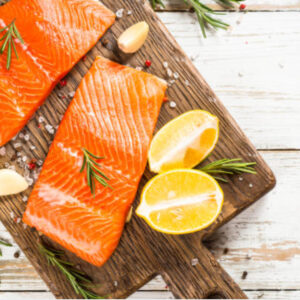
Some oils and fatty fish. Olive oil, flaxseed oil, and fatty fish such as salmon, sardines, and mackerel offer healthy doses of omega-3 fatty acids,. Omega-3 fatty acids, particularly EPA and DHA found in fish oil, can help reduce inflammation through several mechanisms. They can reduce the production of pro-inflammatory molecules, increase the production of anti-inflammatory molecules, and modulate immune cell activity.
Berries
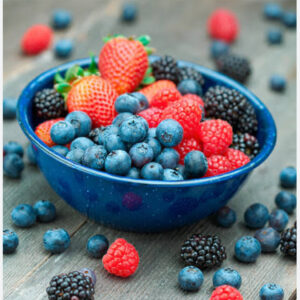
are such a great source of fibre, reduce inflammation and polyphenols
Avocados
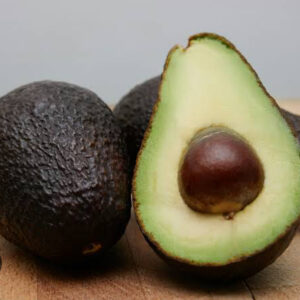
Packed with healthy monounsaturated fatty acids that help to keep our hearts happy, avocados are also an excellent source of fiber.
Olive oil
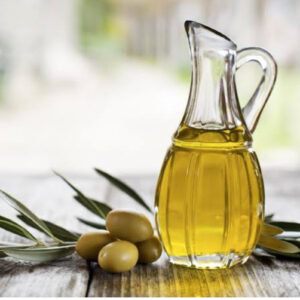
Olive oil contains heart-healthy monounsaturated fat, antioxidants and oleocanthal, a compound that can lower inflammation and pain. Studies suggest extra virgin olive oil may reduce the risk of heart disease, brain cancer, obesity, and other serious health conditions.
Ground Flaxseed
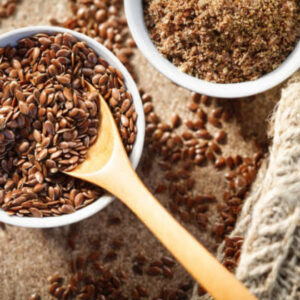
Ground flaxseed for the omega 3 fats, fibre. Eat 1 to 2 tablespoons of chia seeds, ground flaxseed or walnuts to get plant-based omega-3 fats. and a good source of phytoestrogens for modulating estrogen
Citrus fruits

High in fibre and vitamin C. Vitamin C is a powerful antioxidant that plays a role in reducing inflammation. It helps by neutralizing free radicals, which can damage cells and trigger inflammation. Vitamin C also helps decrease pro-inflammatory cytokines, like IL-6, and supports immune function, further contributing to inflammation reduction and great for gut health.
Eggs
Eggs for choline which supports my brain and liver health
Brazil nuts
Brazil nuts for selenium which is important for thyroid and breast health. There are so many other foods I could add to this list but these are just a few that you can easily access and incorporate into meal plans
EASE STRESS
Managing stress can help tamp down inflamm-aging. Chronic stress may trigger the fight, flight, or freeze response, causing the body to release pro-inflammatory cytokines (small proteins) that promote inflammation throughout the body. Activities such as;
Mindful meditation
Deep breathing exercises
Walk in nature
Enjoyable hobbies like painting, cooking, team sports
I hope this provides some insight into Ínflamagging’!
See you on the mat,
Lisa x

